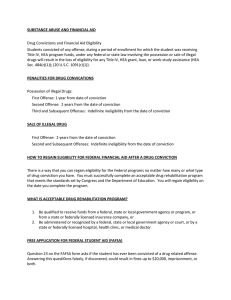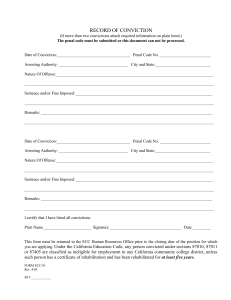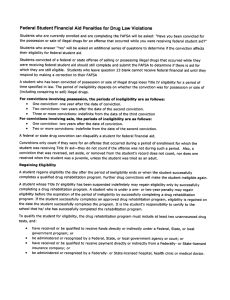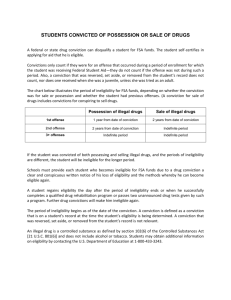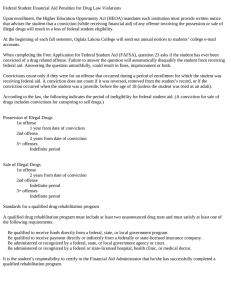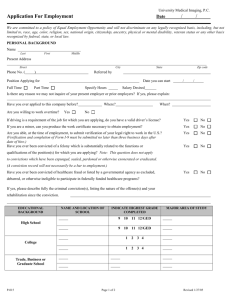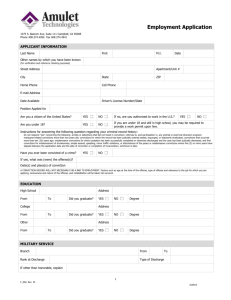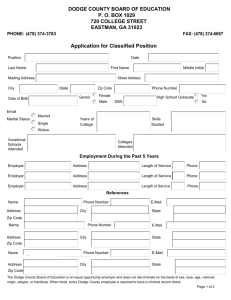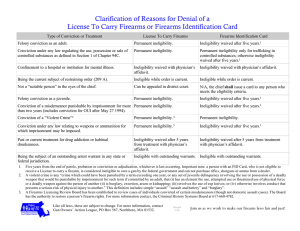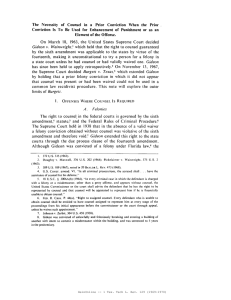NOTICE OF FEDERAL STUDENT AID (FSA) PENALTIES FOR DRUG CONVICTIONS
advertisement
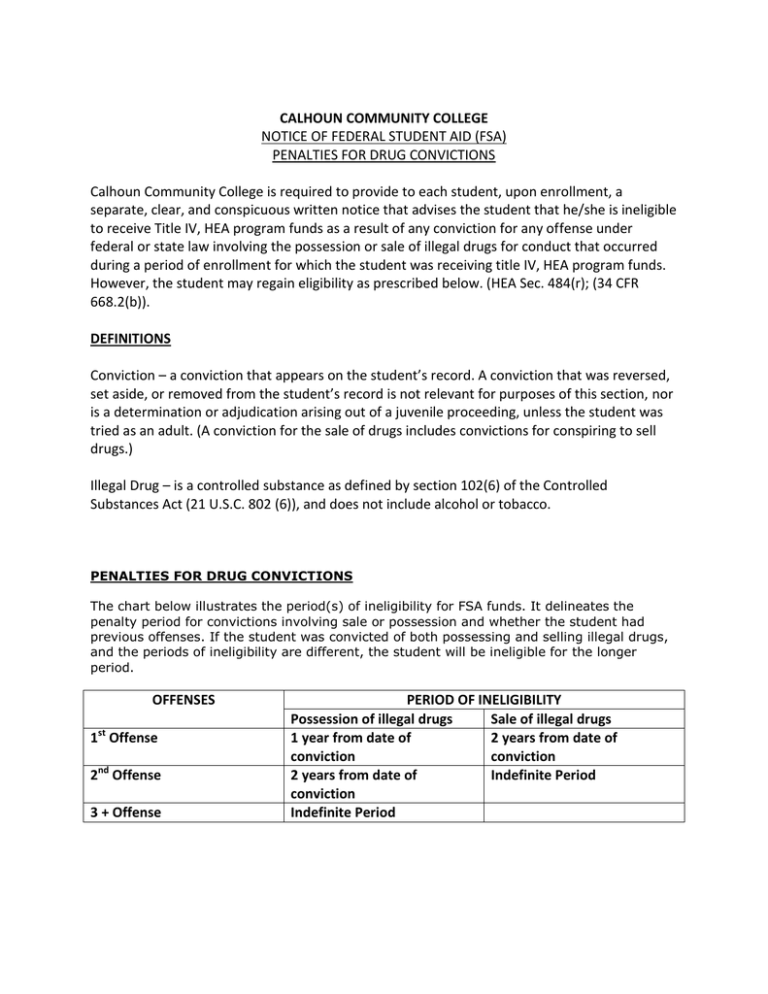
CALHOUN COMMUNITY COLLEGE NOTICE OF FEDERAL STUDENT AID (FSA) PENALTIES FOR DRUG CONVICTIONS Calhoun Community College is required to provide to each student, upon enrollment, a separate, clear, and conspicuous written notice that advises the student that he/she is ineligible to receive Title IV, HEA program funds as a result of any conviction for any offense under federal or state law involving the possession or sale of illegal drugs for conduct that occurred during a period of enrollment for which the student was receiving title IV, HEA program funds. However, the student may regain eligibility as prescribed below. (HEA Sec. 484(r); (34 CFR 668.2(b)). DEFINITIONS Conviction – a conviction that appears on the student’s record. A conviction that was reversed, set aside, or removed from the student’s record is not relevant for purposes of this section, nor is a determination or adjudication arising out of a juvenile proceeding, unless the student was tried as an adult. (A conviction for the sale of drugs includes convictions for conspiring to sell drugs.) Illegal Drug – is a controlled substance as defined by section 102(6) of the Controlled Substances Act (21 U.S.C. 802 (6)), and does not include alcohol or tobacco. PENALTIES FOR DRUG CONVICTIONS The chart below illustrates the period(s) of ineligibility for FSA funds. It delineates the penalty period for convictions involving sale or possession and whether the student had previous offenses. If the student was convicted of both possessing and selling illegal drugs, and the periods of ineligibility are different, the student will be ineligible for the longer period. OFFENSES 1st Offense 2nd Offense 3 + Offense PERIOD OF INELIGIBILITY Possession of illegal drugs Sale of illegal drugs 1 year from date of 2 years from date of conviction conviction 2 years from date of Indefinite Period conviction Indefinite Period How To Regain Eligibility Schools must provide each student who becomes ineligible for Title IV aid due to a drug conviction a clear and conspicuous written notice of his/her loss of eligibility and the methods for regaining eligibility. A student regains eligibility the day after the period of ineligibility ends or when he or she successfully completes a qualified drug rehabilitation program or passes two unannounced drug tests given by such a program. Further drug convictions will make him/her ineligible again. The rehabilitation program described in this section must include at least two unannounced drug tests and satisfy at least one of the following requirements: 1. The rehabilitation program must be qualified to receive funds directly or indirectly from a federal, state, or local government program; 2. The program is administered or recognized by a federal, state, or local government agency or court; 3. The program is qualified to receive payment directly or indirectly from a federally- or state-licensed insurance program; or 4. The program is administered or recognized by a federally-or state-licensed hospital, health clinic or medical doctor. When a student regains eligibility during the award year, he/she may be awarded Pell grant and Campus-based aid (Work-study, Supplemental Educational Opportunity Grant, and Alabama Student Assistance) for the current payment period of enrollment. FREE APPLICATION FOR FEDERAL STUDENT AID (FAFSA) The FAFSA asks if the student has ever been convicted of a drug related offense. Failure to answer the question will automatically disqualify the student form receiving FSA. Answering this question falsely, if discovered could result in fines up to $20,000, imprisonment, or both.
